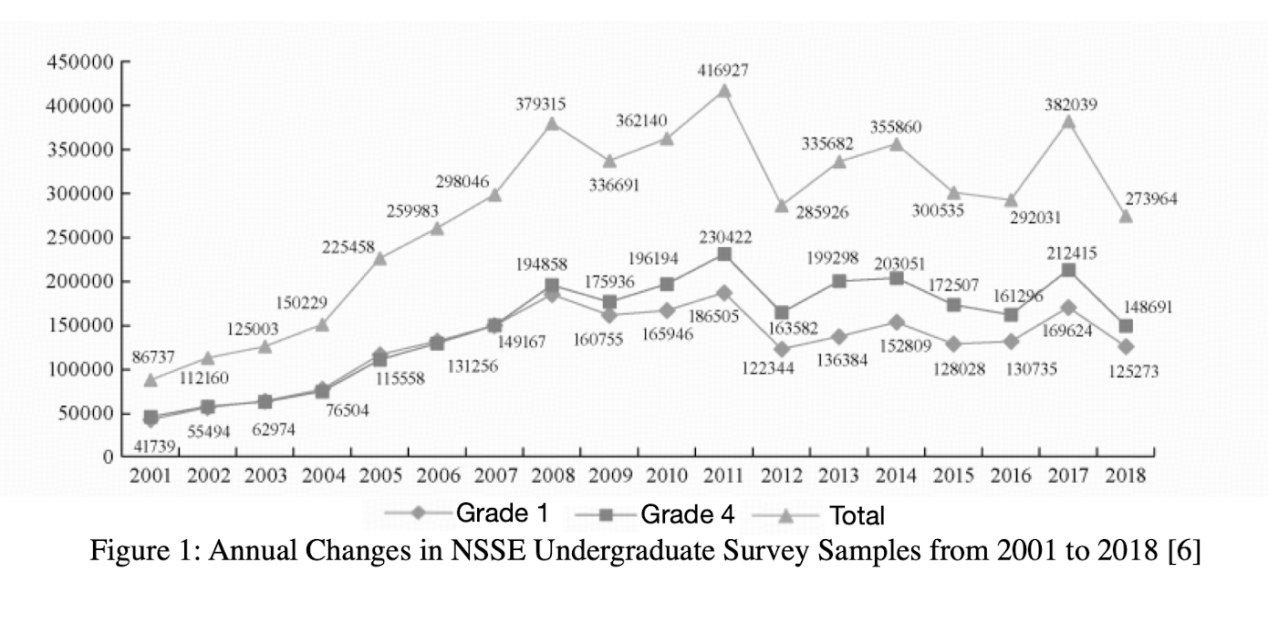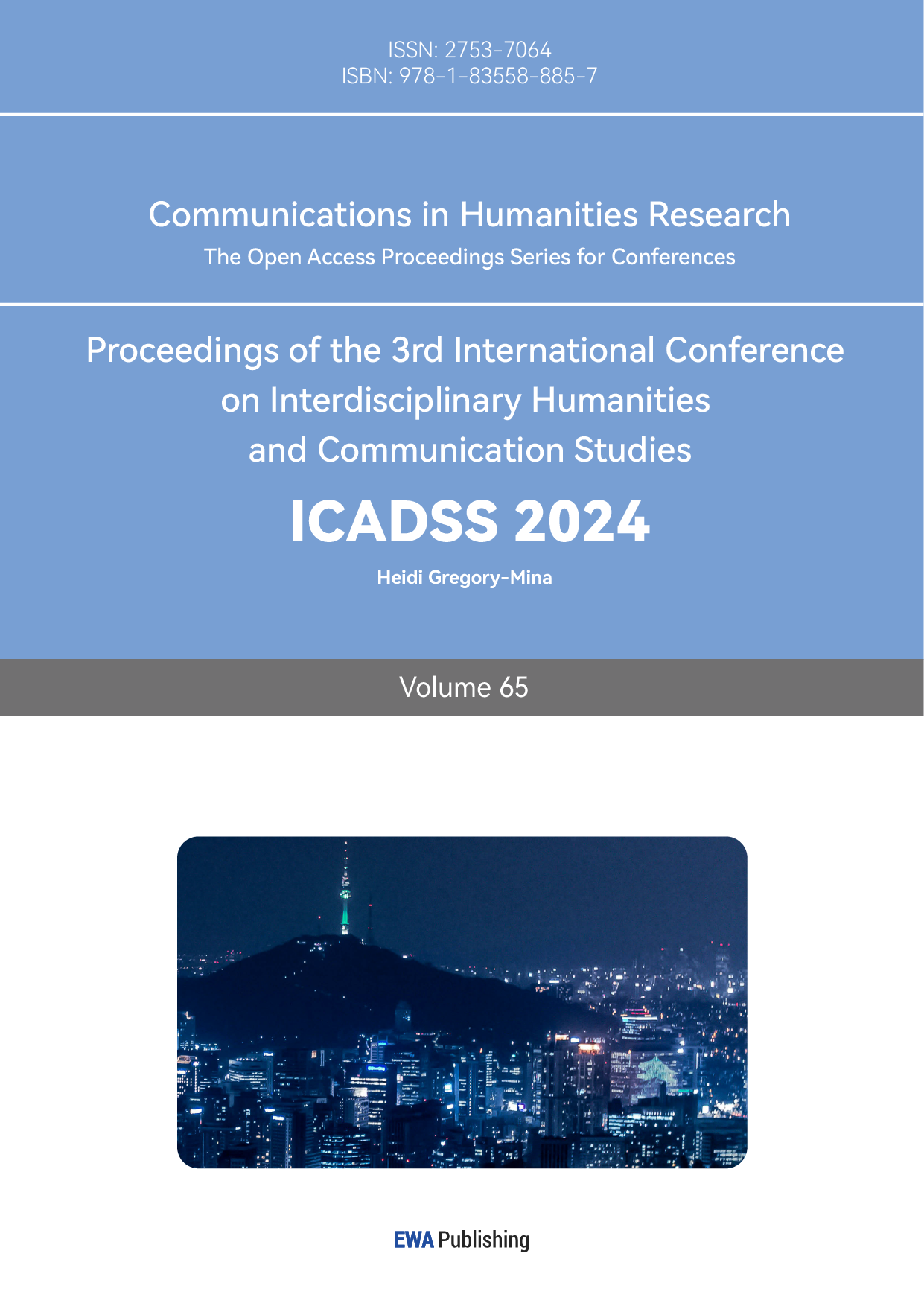1. Introduction
Higher education accounts for over 60% of expenditures in various projects, with the cost of higher education in the United States being notably high, particularly in private universities. The significant tuition fees required to ensure quality in higher education contribute to the existence of educational inequality. In contrast, China's higher education is primarily funded by government investment while also encouraging social participation in educational initiatives, resulting in a relatively singular source of funding. This paper aims to compare and study the fiscal expenditure of higher education in China and the United States, the equality of higher education in the two countries, and the content of higher education in China and the United States. This study adopts the method of literature review and analysis. This paper lays a good theoretical foundation for the improvement of China's higher education system.
2. A Comparative Analysis of Fiscal Expenditures on Higher Education in China and the U.S.
2.1. Fiscal Expenditures on Higher Education in China
Fiscal expenditures on higher education in China are relatively reasonable. As a developing country with a lower exchange rate compared to the U.S., the financial contributions to education can be covered by average households. This affordability is a significant reason why education in China achieves relative equality. China's fiscal expenditures on higher education have been continuously increasing [1,2]. In recent years, the government's investment in higher education has steadily risen to support its high-quality development [1]. According to the latest data, the total funding for higher education nationwide has consistently grown, providing a solid material foundation for universities. This investment not only enhances the level of teaching and research but also improves the quality of talent cultivation [2]. Additionally, the government has implemented measures to support the reform and development of high-level research universities, accelerating the construction of world-class universities and strong disciplines with Chinese characteristics [1,2]. These initiatives are expected to further enhance the international competitiveness of China's higher education and provide robust support for the country's long-term development.
2.2. Fiscal Expenditures on Higher Education in the United States
Fiscal expenditures on higher education in the United States are influenced by multiple factors and exhibit a fluctuating trend, but overall, they are on the rise. Key influencing factors include economic recessions, policy adjustments, and changes in demographic structures, all of which can impact fiscal expenditures on higher education [1,3]. For instance, an economic downturn may lead state and local governments to reduce their funding for higher education, while a decline in student enrollment could decrease tuition revenue [1]. Notably, many institutions have faced challenges in restoring enrollment and supporting students, particularly in the aftermath of the pandemic [1].
3. A Comparative Analysis of Equality in Higher Education in China and the U.S.
3.1. Equality in Higher Education in China
China currently implements a nine-year compulsory education system, with plans to extend it to twelve years [1,2,4,5]. This educational framework aims to ensure fairness and equity to the greatest extent possible. Low tuition fees and affordable textbooks, along with policies like "lottery admissions" for middle schools and tuition waivers for impoverished students, contribute to a more equitable distribution of educational resources among all students, allowing greater access to education [2,6]. Influenced by Confucian culture, which emphasizes equality as significant, this has fostered a fundamental sense of equality in contemporary Chinese society [2,4,6]. However, despite the relatively equal distribution of education in China, there are shortcomings at the regional level. Higher education resources in central and western China, as well as in rural areas, are relatively scarce [2,5]. In response, the Chinese government has increased its investment in these regions and areas of poverty in recent years.
3.2. Equality in Higher Education in the United States
Educational inequality is a significant issue within the U.S. education system, primarily reflected in the uneven distribution of educational resources and opportunities among the wealthy and the poor, white individuals and minorities, and urban and rural areas. This inequality restricts access to quality education for some students [1,3,4]. The high cost of tuition undermines the universality of education in the U.S. The saying "It is difficult for children from poor families to succeed" aptly describes the situation, as college education, particularly at private institutions, is extremely expensive. Many students need to take out loans to complete their studies, imposing a heavy financial burden on them and their families [3]. However, government financial measures, such as federal student aid, have provided students from low-income families with greater opportunities to attend college and pursue higher education [3].
4. A Comparative Analysis of the Content of Higher Education in China and the U.S.
4.1. Content of Higher Education in China
The content of higher education in China is quite broad, primarily encompassing specialized knowledge. Most courses focus on the cultivation of professional knowledge and skills, providing students with theoretical knowledge and practical skills in their specific fields, thereby fostering skill development [4]. Chinese education is deeply influenced by Confucian culture, which emphasizes moral education and humanitarian care [2,4,5]. As students pursue their studies, they not only acquire knowledge but also develop values such as respect for teachers and unity among peers. Chinese education primarily adopts an exam-oriented approach, resulting in a strict teaching management system. Schools commonly implement rigorous educational management to ensure quality [4,5,6]. Teachers are dedicated and patient, helping students grasp fundamental knowledge and assessing their learning outcomes through various exams and evaluations. However, the excessive focus on specialized training courses has led to an environment that prioritizes grades, which is one of the main shortcomings of higher education in China [4,6]. This approach tends to neglect the cultivation of students' individual needs and the integration of diversified curricula.
4.2. Content of Higher Education in the United States
The U.S. education system is renowned for its diversity, flexibility, and emphasis on individual student needs. It encompasses a wide range of institutions, from public to private and from primary education to higher education, allowing students to choose schools and courses that align with their interests and needs [3,4]. This diversity and flexibility provide students with abundant learning opportunities and foster personal growth. Figure 1 shows annual changes in the NSSE undergraduate survey sample from 2001 to 2018. The American education system encourages students to select their academic paths based on their interests and strengths, offering various courses and activities to meet their personalized needs [3,4]. This focus on individuality nurtures students' abilities in independent thinking, innovation, and critical analysis. Unlike exam-oriented education, the grading system in the U.S. is more personalized and comprehensive, with exam scores representing only a portion of the overall assessment [4]. Elements such as presentations, group collaboration, and video projects are also included in course evaluations. As a result, students not only learn how to answer questions and take exams but also engage in a holistic learning process, gaining a comprehensive understanding of their subject matter [1,3,4]. Additionally, the U.S. is home to numerous world-class universities, such as Harvard University, the Massachusetts Institute of Technology, and Stanford University [3,4]. These institutions are not only renowned for their academic research but also offer a wide array of course options and high-quality educational resources [3,4].

Figure 1: Annual Changes in NSSE Undergraduate Survey Samples from 2001 to 2018 [6]
5. Conclusion
An in-depth analysis of higher education in China and the U.S. mentioned in this paper reveals significant insights into fiscal expenditures, educational equity, and educational content. However, this study acknowledges its limitations, primarily its focus on the higher education sector, which does not fully encompass other vital components of the education system, such as vocational education. Looking ahead, future research should aim to broaden the scope and sample size to include various educational stages, including vocational and primary education, thereby providing a more comprehensive and multidimensional perspective on educational comparisons. Additionally, employing diverse research methods and data sources will facilitate more detailed and in-depth conclusions, offering valuable support for the ongoing development of education in both countries and globally.
References
[1]. Wang Xin. (2022) Comparative study on the fiscal expenditure model of higher education in China and the United States. https://chn.oversea.cnki.net/KCMS/detail/detail.aspx?dbcode=CPFD&dbname=CPFDLAST2023&filename=DLWH202211003057&uniplatform=OVERSEA&v=dKfV5nDiGHJCgXW7abDBGIjdTKMksiuZ6t981KR3wmSoSDsXHYAhPv5wJDKXke6pYVnFD1_rfZU%3d
[2]. Denis, C.T., etc. (2024) Education of China. https://www.britannica.com/place/China/Education
[3]. The Editors of Encyclopaedia Britannica. (2024) higher education. https://www.britannica.com/topic/higher-education
[4]. Zhao Guoli, Liu Lin. (2011) A comparative study of ideological and political education in Chinese and American universities. https://chn.oversea.cnki.net/KCMS/detail/detail.aspx?dbcode=CJFD&dbname=CJFD2011&filename=JYDB201101016&uniplatform=OVERSEA&v=8q2jZesNLC58zRmV_BE5-ao-nfAamfHbhK2oorg9_3OYEfIqrXXabwVHv3SFNR2x
[5]. Xiong, S.D. (2024) Supporting Chinese-style modernization with high-quality development of higher education. https://www.cki.net
[6]. Huang Yuheng, Shi Jinghuan. (2023) An analysis of the effectiveness of the “student-centered” teaching reform in the stage of popularization of higher education in the United States. Journal of Educational Studies, Vol.20, No.2: 150-164.
Cite this article
He,G. (2025). Formulating and Developing China's Education Policies in the Context of Sino-American Educational Backgrounds. Communications in Humanities Research,65,62-65.
Data availability
The datasets used and/or analyzed during the current study will be available from the authors upon reasonable request.
Disclaimer/Publisher's Note
The statements, opinions and data contained in all publications are solely those of the individual author(s) and contributor(s) and not of EWA Publishing and/or the editor(s). EWA Publishing and/or the editor(s) disclaim responsibility for any injury to people or property resulting from any ideas, methods, instructions or products referred to in the content.
About volume
Volume title: Proceedings of 3rd International Conference on Interdisciplinary Humanities and Communication Studies
© 2024 by the author(s). Licensee EWA Publishing, Oxford, UK. This article is an open access article distributed under the terms and
conditions of the Creative Commons Attribution (CC BY) license. Authors who
publish this series agree to the following terms:
1. Authors retain copyright and grant the series right of first publication with the work simultaneously licensed under a Creative Commons
Attribution License that allows others to share the work with an acknowledgment of the work's authorship and initial publication in this
series.
2. Authors are able to enter into separate, additional contractual arrangements for the non-exclusive distribution of the series's published
version of the work (e.g., post it to an institutional repository or publish it in a book), with an acknowledgment of its initial
publication in this series.
3. Authors are permitted and encouraged to post their work online (e.g., in institutional repositories or on their website) prior to and
during the submission process, as it can lead to productive exchanges, as well as earlier and greater citation of published work (See
Open access policy for details).
References
[1]. Wang Xin. (2022) Comparative study on the fiscal expenditure model of higher education in China and the United States. https://chn.oversea.cnki.net/KCMS/detail/detail.aspx?dbcode=CPFD&dbname=CPFDLAST2023&filename=DLWH202211003057&uniplatform=OVERSEA&v=dKfV5nDiGHJCgXW7abDBGIjdTKMksiuZ6t981KR3wmSoSDsXHYAhPv5wJDKXke6pYVnFD1_rfZU%3d
[2]. Denis, C.T., etc. (2024) Education of China. https://www.britannica.com/place/China/Education
[3]. The Editors of Encyclopaedia Britannica. (2024) higher education. https://www.britannica.com/topic/higher-education
[4]. Zhao Guoli, Liu Lin. (2011) A comparative study of ideological and political education in Chinese and American universities. https://chn.oversea.cnki.net/KCMS/detail/detail.aspx?dbcode=CJFD&dbname=CJFD2011&filename=JYDB201101016&uniplatform=OVERSEA&v=8q2jZesNLC58zRmV_BE5-ao-nfAamfHbhK2oorg9_3OYEfIqrXXabwVHv3SFNR2x
[5]. Xiong, S.D. (2024) Supporting Chinese-style modernization with high-quality development of higher education. https://www.cki.net
[6]. Huang Yuheng, Shi Jinghuan. (2023) An analysis of the effectiveness of the “student-centered” teaching reform in the stage of popularization of higher education in the United States. Journal of Educational Studies, Vol.20, No.2: 150-164.









